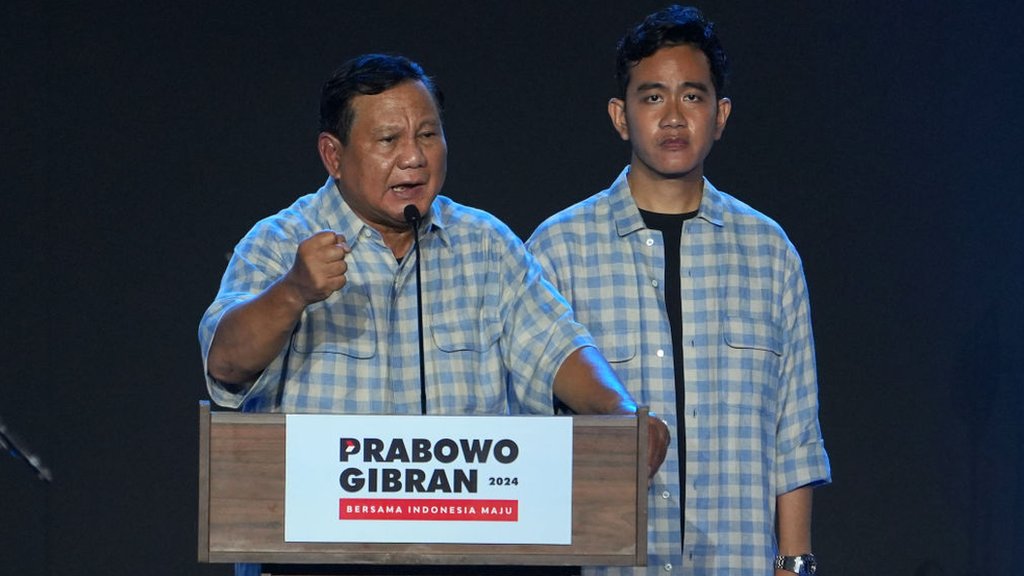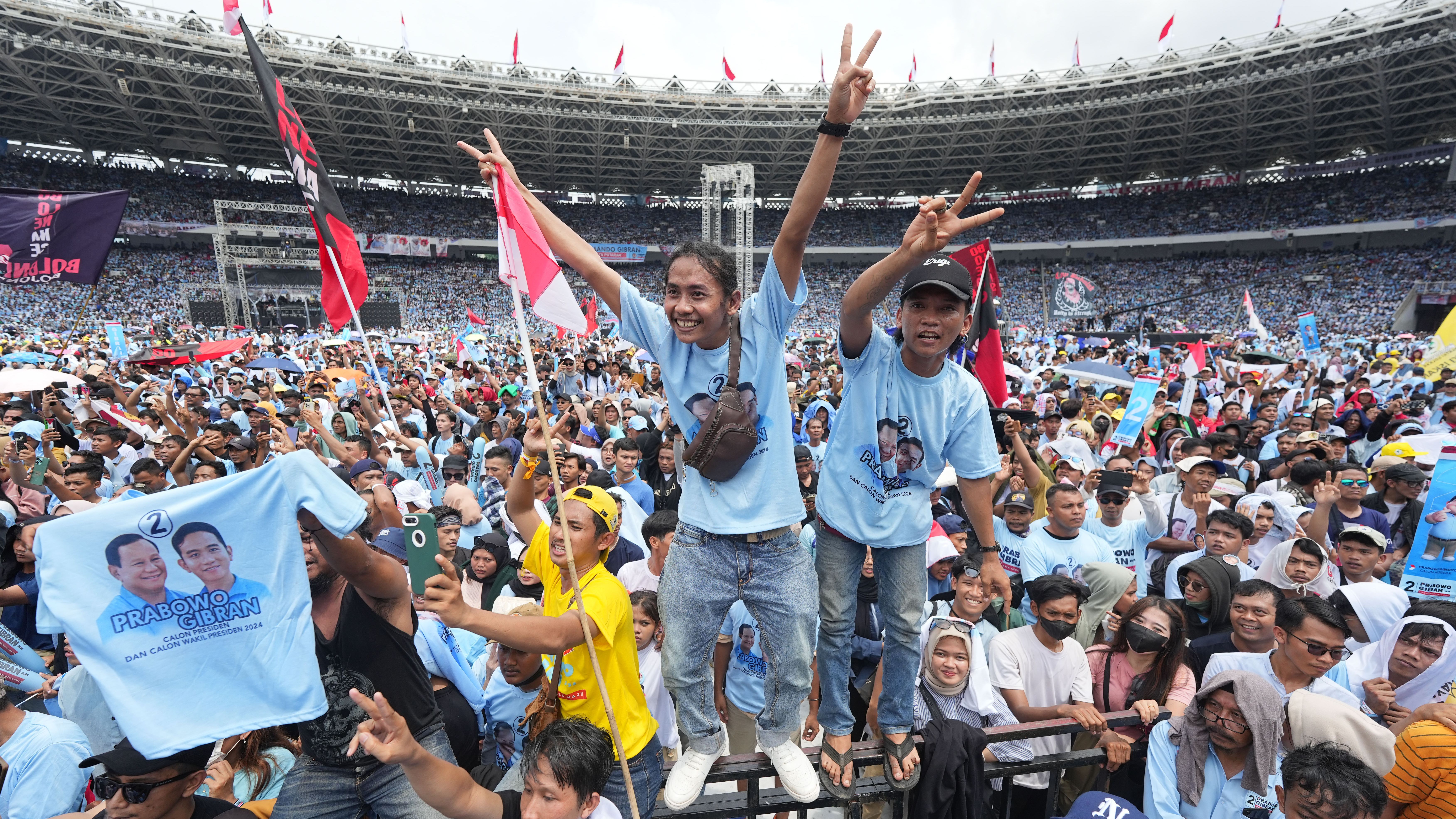Former Military Leader Claims Victory In Indonesian Presidential Election
Former military leader claims victory in Indonesian presidential election. The former army general, Prabowo Subianto, aged 72, with a contentious history claimed victory after unofficial tallies indicated that he had secured nearly 60% of the vote, sufficient to avoid a presidential runoff.
Author:Rhyley CarneyReviewer:Paula M. GrahamFeb 16, 20248.3K Shares157.8K Views

Former military leader claims victory in Indonesian presidential election. The former army general, Prabowo Subianto, aged 72, with a contentious history claimed victory after unofficial tallies indicated that he had secured nearly 60% of the vote, sufficient to avoid a presidential runoff.
These figures are based on approximately 85% of votes, as reported by state-owned news agency Antara, which cited early counts conducted by various non-governmental think tanks. Voting stations closed nationwide early Wednesday afternoon.
Prabowo, positioned as the leading candidate before Wednesday's election, addressed supporters in Jakarta, pledging to govern "for all the people of Indonesia" alongside his running mate Gibran Rakabuming Raka, who happens to be the eldest son of President Joko Widodo.
“„Although we are grateful, we must not be arrogant, we must not be euphoric, we must remain humble. This victory must be a victory for all Indonesian people. I will lead together with Gibran to nurture, protect and defend all the people of Indonesia, regardless of tribe, ethnic group, race and religion and social background, the people of Indonesia are our responsibility to protect.- Prabowo Subianto
The popular former governor, Anies Baswedan, was in second place with less than 22% of the votes, while rival Ganjar Pranowo trailed in third, according to the unofficial early count. Both of their teams have contested the early results and stated that it is premature to declare the election outcome, as reported by spokespeople from their respective parties.
The early poll results remained unverified, although reputable think tanks have previously demonstrated accuracy in predicting Indonesian election outcomes. During his Wednesday speech, Prabowo urged supporters to "patiently await" the official vote declaration by the country's election commission, scheduled for March.
Deadly riots erupted after the last election in 2019 when Prabowo, who was defeated, contested the results. Indonesia, the world's fourth most populous nation and home to the largest Muslim population globally, saw over 200 million eligible voters across 38 provinces participate in what was touted as the world's largest single-day election.
However, conducting an election in the world's largest archipelagic nation is an immense undertaking. Indonesia spans a wider area than the United States and encompasses three time zones. It comprises over 18,000 islands and islets, of which 6,000 are inhabited, and hosts over 150 languages spoken across its expanse.
Experts highlight that young voters have played a crucial role in this year's election, with approximately half of registered voters being under the age of 40, according to the General Election Commission.
Following Prabowo's speech, Gibran took the stage and acknowledged the significant influence of young voters in the election, stating to supporters, "In the future, we will actively involve young people."
What Will A Prabowo Presidency Mean?
Prabowo comes from a prominent political lineage, and his background is marked by controversy, particularly his association with the late dictator Suharto, who was also his former father-in-law. Throughout his political career, he has faced accusations of human rights abuses stemming from his military tenure.
His father, Sumitro Djojohadikusumo, served as a former Finance and Trade minister, while his grandfather, Margono, founded Indonesia's state bank, Bank Negara Indonesia, and led a presidential advisory council.
Prabowo entered Indonesia's Military Academy in 1970 and rose to become a special forces commander, leading operations against pro-independence factions during Indonesia's 24-year military occupation of East Timor. He has also been implicated in the abduction of pro-democracy activists in the waning months of Suharto's authoritarian regime.
In recent years, he has rebranded himself as a proponent of Indonesia's vibrant democracy, cultivating an image as a genial yet steadfast elder statesman. Despite his controversial past, he has remained a prominent figure in Indonesian politics for the past decade.
He contested the presidential elections in both 2014 and 2019 but was defeated on both occasions by the outgoing president, Joko Widodo, widely known as Jokowi. Despite their past rivalry, the two leaders set aside their differences when Jokowi appointed Prabowo as defense minister.
In the current election cycle, he allied with Jokowi's eldest son, Gibran Rakabuming Raka, as his vice-presidential candidate - a decision that stirred controversy and drew criticism of Jokowi for alleged interference as he prepared to step down from the presidency.
"It is widely expected for the president to remain neutral in elections," said Leena Rikkilä Tamang, Asia Pacific Director at International IDEA. "A Prabowo win will also be seen as "a continuation of Jokowi’s policies."
Experts observe that Prabowo's popularity has surged since the 2019 election, largely due to the implicit backing from Jokowi. Jokowi, who rose from humble beginnings and campaigned as a departure from Indonesia's entrenched wealthy classes, presided over significant economic expansion and will depart office with widespread popularity. However, Indonesia saw setbacks in human rights and corruption rankings during his tenure. Prabowo has actively positioned himself as a successor to Jokowi's legacy.
"Concerns (about a Prabowo presidency) will focus on the potential for an increase in illiberal actions as he has previously advocated for removing presidential term limits, ending direct presidential elections and curtailing human rights protections," said Laura Schwartz, Senior South East Asia Analyst at risk intelligence company Verisk Maplecroft. "Such developments would dent Indonesia’s reputation and its ability to attract foreign investment."
Zachary Abuza, a professor specializing in Southeast Asian politics and security issues at the National War College in Washington, DC, stated that Prabowo "has worked really hard to reinvent himself and to whitewash his past."
“„Having a former military man at the helm could signal a return to the dark days of authoritarian rule. Jokowi surrounded himself with many army generals and had a tendency to ‘securitize’ many problems such as the (coronavirus) pandemic but things could get worse with Prabowo.- Zachary Abuza
"I think he would go into the ranks of retired military men for his advisors and cabinet officials. But the bigger concern is that he would accelerate the return of the military."
Voters in Jakarta expressed to reporters that this election outcome could mark the resurgence of "dynasty politics." Yohanes Gregorius Tukan, aged 41, commented that Prabowo and Gibran's campaign exhibited "nuanced nepotism and corruption." Another voter, Kuncoro Rikoni, voiced concerns about "a return to authoritarian rule."
"We do not want to lose the democracy that we have fought for with blood and tears in 1998."

Rhyley Carney
Author

Paula M. Graham
Reviewer
Latest Articles
Popular Articles
